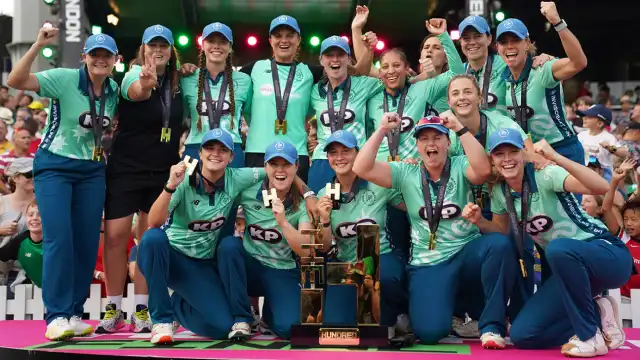
Independent living can be categorized as a philosophy, a movement, or a set of initiatives. The Rehabilitation Act of 1973, as modified (The Act), authorizes funding for independent living programs in the framework of ACL. The current goal of the program, according to Title VII, Chapter 1 of the Act, is to “promote an independent Living Competition, including a philosophy of consumer control, peer support, self-help, self-determination, equal access, and individual and system advocacy, to maximize the leadership, empowerment, independence, and productivity of individuals with disabilities and the integration and full inclusion of individuals with disabilities into the mainstream of American society.”
The Centre for Independent Living standards and assurances, requirements for the State Plan for Independent Living (SPIL), duties of the Designated State Entity (DSE), and provisions for the Statewide Independent Living Councils (SILCs) are some of the Act’s key provisions.
States must collaborate to create and submit a State strategy for Independent Living (SPIL), a three-year strategy for delivering independent living services in the state, to be eligible for financing. The organization that collects accounts for, and distributes, state monies received under Subpart B of the Act is the Designated State Entity (DSE). A separate organization called the Statewide Independent Living Council (SILC) oversees, reviews, and assesses how the SPIL is implemented. Centers for Independent Living (CILs) are private nonprofit organizations that are cross-disability, non-residential and consumer-controlled. They are created and run within a local community by people with disabilities and offer various services for independent living.
Centers for Independent Living (CILs):
Centers for Independent Living (CILs) grant to establish Centers for Independent Living for people with disabilities and are created and run by people with disabilities. The cornerstone of ACL’s independent living initiatives is CILs, which support community living and independence for persons with disabilities across the country by the idea that everyone can lead a dignified life, make their own decisions, and participate fully in society. To promote equality of opportunity, self-determination, and respect, these programs give persons with disabilities the tools, resources, and support they need to integrate into their communities fully.
What are the fundamental criteria for CILs?
The Centres for Independent Living (CILs) Programme awards 354 discretionary grants to CILs, which are private, nonprofit, non-residential, community-based, cross-disability organizations that offer services for independent living. The following IL core services must be offered by centers financed by the program, at the very least:
- Information and referral
- IL skill development
- Peer counseling
- Systemic and individual activism
- Services that aid those at risk of entering institutions help the community move from nursing homes and other institutions and help young people transfer to higher education.
In addition to other services, centers might offer psychological counseling, help with finding housing or shelter, personal assistance services, referrals for and assistance with transportation, physical therapy, mobility training, rehabilitation technology, recreation, and other services required to help people with significant disabilities function more independently in their families, communities, and in the workplace.
Qualified centers must meet the following minimal compliance requirements to continue receiving CIL program funding:
- Promotion of the IL ideology
- Cross-disability IL service delivery
- Assistance with setting and achieving the consumer’s specified IL goals
- Efforts to make it easier for Illinois residents to choose from decent community options
- Providing IL core services and combining them with other IL services as necessary
- Developing community resources to fulfill the needs of people with severe impairments
- Undertaking resource development activities to find alternative financing sources
Centers for Independent Living Competition – Guam
To offer, enhance, and better provide services for independent living and strengthen the network of centers for independent living, ACL plans to award money to create one (1) center for independent living in Guam. The following essential services must be offered by centers sponsored by the program, as a minimum: information and referral, instruction in independent living skills, peer counseling, individual and system advocacy, and Services that ease the transfer from nursing homes and other institutions to the community, support for individuals who run the danger of doing so, and help young people make the transition to postsecondary education. Guam’s Center for independent living is expected to receive $112,444 in financing.
Applicants Eligible for this Grant
501 (c) (3) nonprofit organizations, excluding institutes of higher education
Additional Information on Eligibility
Foreign organizations cannot apply for or be awarded under this announcement. Community and faith-based organizations that fit the criteria can apply for rewards through this funding opportunity announcement.
Funding Opportunity ID
342894
Opportunity Number
HHS-2023-ACL-AOD-IL-0012
Opportunity Title
Centers for Independent Living Competition – Guam
Opportunity Category
Discretionary
Funding Instrument Type
Grant
CFDA Number(s)
93.432
Agency Code
HHS-ACL
Agency Name
Department of Health and Human Services
Administration for Community Living
Posted Date
Feb 23, 2023
Close Date
Apr 24, 2023 Applications that are electronically submitted must be received no later than 11:59 p.m. ET on the application deadline.
Estimated Total Program Funding
$112,444
Contact
Administration for Community Living
Conclusion
The funding available for discretionary grants to centers in each state is determined using a population-based methodology. ACL is expected to continue funding existing centers at the same level of funding they received in the previous fiscal year and to give them a cost-of-living adjustment, subject to the availability of appropriations. According to the state’s State Plan for Independent Living Competition and the availability of adequate additional finances, funding for new centers is distributed competitively.







